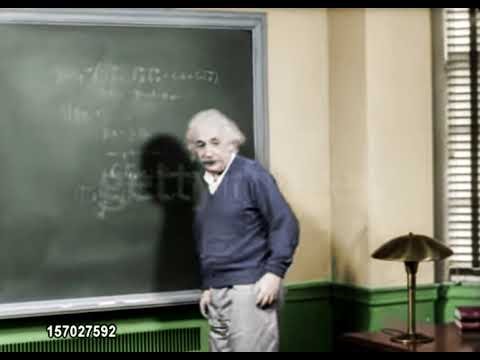
Albert Einstein, widely regarded as one of the greatest scientific minds in history, revolutionized our understanding of the universe with his groundbreaking theories. Born on March 14, 1879, in Ulm, Germany, Einstein’s immense intellect and insatiable curiosity propelled him to unravel the mysteries of the universe.
This essay explores his early life, education, remarkable achievements, and his final days, shedding light on the extraordinary legacy of this iconic figure.
Did Albert Einstein Study?
Albert Einstein Early Life
Albert Einstein was the son of Hermann Einstein and Pauline Koch. Growing up in a middle-class Jewish family, he displayed an early fascination with science and mathematics. Despite struggling with traditional schooling methods, young Einstein excelled in his self-driven studies. His intense curiosity and penchant for questioning conventional wisdom foreshadowed his future role as a scientific visionary.
Albert Einstein Education
In 1895, Einstein enrolled in the Swiss Federal Polytechnic in Zurich, Switzerland, to pursue a degree in physics and mathematics. His unyielding dedication to his studies often led him to isolate himself from his peers. During this time, Einstein’s voracious appetite for knowledge blossomed, and he immersed himself in the works of great thinkers like Isaac Newton, James Clerk Maxwell, and Ernst Mach. This foundational education set the stage for his groundbreaking discoveries later in life.
Albert Einstein Higher Education and Scientific Advancements
After graduating in 1900, Einstein worked as a patent examiner at the Swiss Patent Office, where he had ample time to ponder scientific questions. In 1905, which he later called his “miracle year,” Einstein published four groundbreaking papers. These papers explored the photoelectric effect, Brownian motion, special relativity, and the famous equation E=mc², which became synonymous with his name. These extraordinary contributions revolutionized our understanding of physics, laid the foundation for quantum theory, and propelled Einstein into the scientific limelight.
Einstein’s revolutionary theory of general relativity, published in 1915, further transformed our understanding of gravity. The theory’s prediction of gravitational waves, confirmed a century later, solidified Einstein’s status as a scientific genius. His work also played a pivotal role in advancing technology, leading to significant developments like nuclear energy and GPS systems.
Albert Einstein Achievements and Legacy
Einstein’s achievements earned him numerous accolades, including the Nobel Prize in Physics in 1921 for his explanation of the photoelectric effect. However, his contributions extended far beyond his scientific endeavors. Einstein became an ardent advocate for civil rights, pacifism, and international cooperation. His belief in the power of education and critical thinking inspired generations of scientists, philosophers, and humanitarians.
Albert Einstein Final Days
In his later years, Einstein continued to contribute to theoretical physics while also passionately advocating for peace. He experienced political and social upheavals, witnessing the rise of Nazi Germany and the devastation of World War II. In 1933, he left Germany and settled in the United States, where he joined the Institute for Advanced Study at Princeton University.
Albert Einstein passed away on April 18, 1955, at the age of 76. His death marked the end of an era, but his legacy lives on as a beacon of intellectual brilliance and scientific curiosity. Einstein’s theories and ideas continue to shape our understanding of the universe, inspiring future generations to push the boundaries of knowledge.
Conclusion: Albert Einstein Study
Albert Einstein’s profound impact on science and society cannot be overstated. His remarkable intellect, relentless pursuit of knowledge, and willingness to challenge the status quo laid the groundwork for extraordinary scientific discoveries. From his early life and education to his groundbreaking theories and final days, Einstein’s life serves as a testament to the power of human curiosity and the potential for individuals to reshape the world through their ideas.